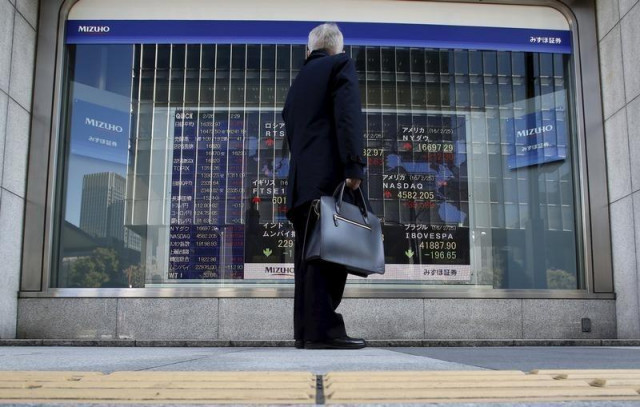Trade woes, growth worries keep stocks in check
MSCI's index for emerging market stocks remains flat to lower

MSCI's index for emerging market stocks remains flat to lower. PHOTO: REUTERS
MSCI's index for emerging market stocks was flat to lower. Volumes were low with US markets closed for a holiday.
Business surveys showed on Monday how the US-China trade war hurt growth of Asian economies in August, strengthening the case for fresh stimulus to fend off recession risks.
"There's pretty much a 50-50 split between countries seeing higher and lower PMI indices, but the average reading remains depressed," Kit Juckes, Societe Generale's global head of FX strategy, wrote in a note.
Stocks in export-reliant South Korea and Taiwan gained, although data showed factory activity shrank in both economies in August.
Indian manufacturing activity slowed to its lowest in 15 months, but markets in Mumbai were shut for a holiday.
Mainland Chinese markets outperformed as a pledge by the government to boost support for the economy offset worries about slowing factory activity in August. A private survey by Caixin showed August manufacturing in China unexpectedly expanded.
Hong Kong's Hang Seng index fell after another weekend of violent anti-government protests.
Outside Asia, Russia's weak factory reading for a fourth straight month in August did not provoke much reaction from markets. Turkey's economy slowed less than expected in the second quarter, and both stocks and the Turkish currency rose.
Currencies in the developing world were more mixed, with South Korea's won and the Chinese yuan slipping lower. South Africa's rand and Russia's rouble gained 0.3% each against the dollar.
In emerging Europe, the Polish Zloty shot up against the euro after data showed manufacturing slowed less than expected in August.
Investors will now be watching Argentine markets, after the government authorised currency controls on Sunday to prop up the peso.



















COMMENTS
Comments are moderated and generally will be posted if they are on-topic and not abusive.
For more information, please see our Comments FAQ